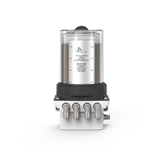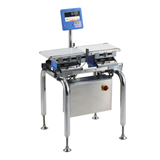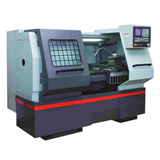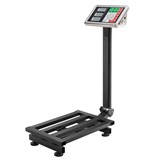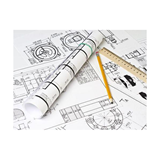IndustrySearch: What is Minimum Quantity Lubrication (MQL)?
John Barker (Unist Australia): Minimum Quantity Lubrication (MQL) is just what the name implies; it uses a very small amount of a fluid to reduce the friction between a cutting tool and the work piece. The exact amount for "minimum" varies depending on who you ask. Typically 10ml of oil per hour is a good guide for a single nozzle set up. The German DIN specification puts it up to 50 ml/hour of lubricant.
IndustrySearch: How does MQL work?
John Barker (Unist Australia): In metal machining, the metal is removed by the cutting edge of a tool, which shears off a chip from the work piece. The energy used in deforming the metal is released, mostly in the form of heat, in the primary and secondary shear zones. The energy released in the primary shear zone cannot be avoided.
It is a result of the molecular bonds being broken on the work piece. Some of the heat goes into the work piece and the rest into the chip. The friction - and resulting heat - between the tool and the work piece in the secondary shear zone causes both the tool and the chip to warm. The heat in this zone is one of the largest contributors to premature tool wear. MQL, properly done, greatly reduces this heat by lubricating the chip-tool interface.
IndustrySearch: What are the benefits of changing to MQL?
John Barker (Unist Australia): The extreme reduction of fluid greatly reduces health hazards caused by metalworking fluid emissions both into the air and on the skin of employees. When done properly, MQL fluids do not spread throughout the work area. They do not get into the electrical components of the machine nor dissolve the paint off surfaces.
This makes the whole shop cleaner and extends the life of the machines. Many shops see substantial increases in tool life. Increases have been up to 500 per cent. In addition to the improvement in tool life, it usually results in better surface finishes too.
IndustrySearch: Is MQL a cost effective alternative to using flood coolant?
John Barker (Unist Australia): Absolutely yes, the exact amount of savings will vary by plant, but industry estimates are that from 8 to 16 per cent of total operation costs are related to metalworking fluids (MWFs) and MQL will substantially cut these costs.
IndustrySearch: What kind of fluids are used to achieve the best MQL results?
John Barker (Unist Australia): Synthetic esters are preferable for machining processes where the lubricating effect is of prime importance. This is the case for most materials and operations. These lubricants are designed for low viscosity while maintaining a high boiling and flash point. This gives better results under load and generates fewer vapours than conventional mineral oils. In addition, ester oils have very good biodegradability and very low toxicity.
Since such a small amount of the oil is applied, the parts are still considered dry (i.e. less than 2 per cent of lubricant is present on the chip). However, there will likely still be a very small amount of oil on the part right around the cut. This minute amount of oil can help with corrosion resistance and item separation, but may cause issues in some secondary operations.
Fatty alcohols offer less lubricity but, because of their lower flash point, offer more cooling. They are useful when a little extra cooling is needed more than lubricity. This is often the case on materials that have some natural lubricity. If no sweet spot can be found using the synthetic ester and a built-up edge is being formed on the tool, the fatty alcohol may offer enough additional cooling to help.
Fatty alcohols have very good biodegradability, and are toxicologically and environmentally harmless. Fatty alcohols also tend to be consumed more fully in the process than do the synthetic esters so the parts come out with little to no residue on them. This may be important when secondary operations will be performed on the parts.
IndustrySearch: What equipment is needed to implement MQL?
John Barker (Unist Australia): Moving to MQL is no different than adopting any other process: having the right tools for the job makes the difference between an easy transition and a failure.
There are four main parts to the MQL ecosystem. The first is the applicator which determines how much air and fluid are dispensed.
The next is the output: the hoses, chambers and nozzles or exit holes where the lubricant is released into the tooling area.
The tooling comes third. This includes the tool and tool holders.
The final component is the machine. Modern production environments can be demanding. The level of sophistication of the MQL system will often be determined by the complexity of the application. Simple open machines can use a simple bolt-on type system.
Machining centres running complex parts and operations may need an MQL system that has integrated control and monitoring. The more demanding MQL implementations may also require the assistance and cooperation of the machine and tool manufacturers to achieve the best results.
IndustrySearch: How much will it cost me to get started with MQL?
John Barker (Unist Australia): For around $1,200 you can buy a one nozzle system that is portable so it can be taken between machines. This unit will allow you to do milling, turning, drilling and many more metal cutting applications. The only other thing you need is a superior MQL vegetable oil and you are up and away.
Unist Australia specialises in MQL and should the reader like more information there is a new publication available called "The MQL Handbook", a guide to machining with Minimum Quantity Lubrication. For more information contact John Barker at Unist Australia.



